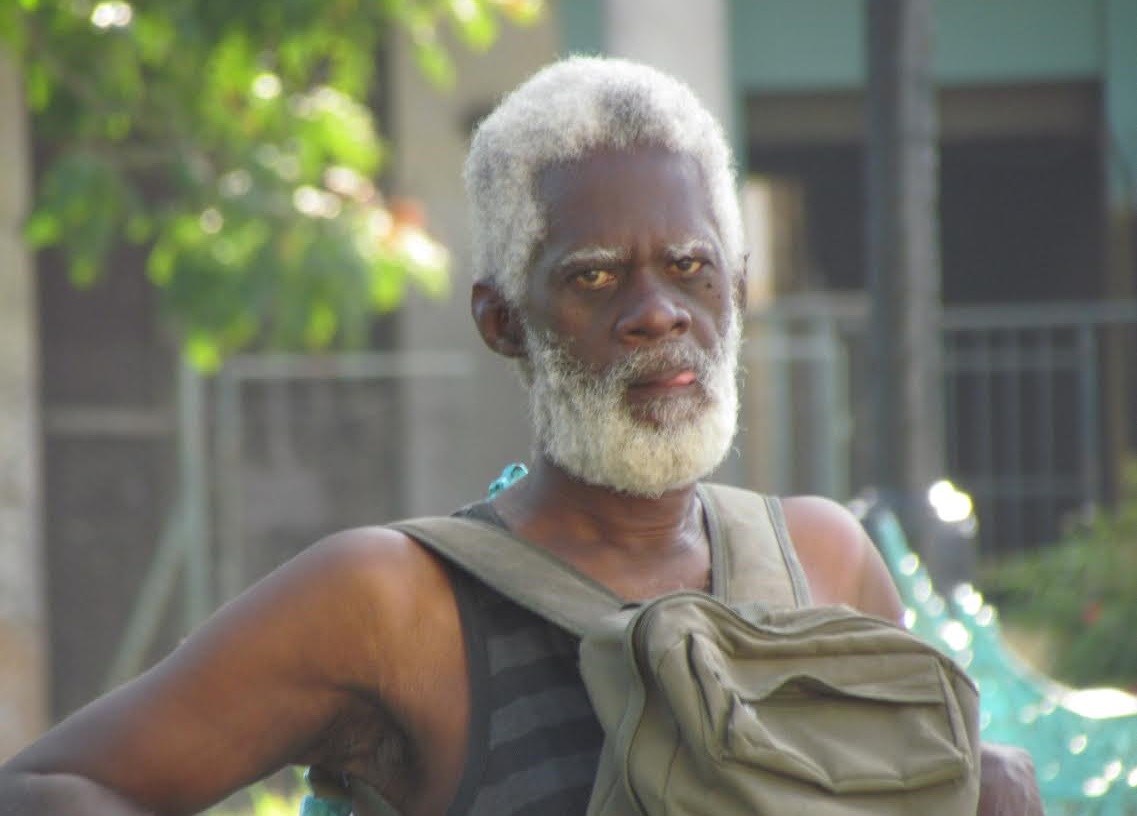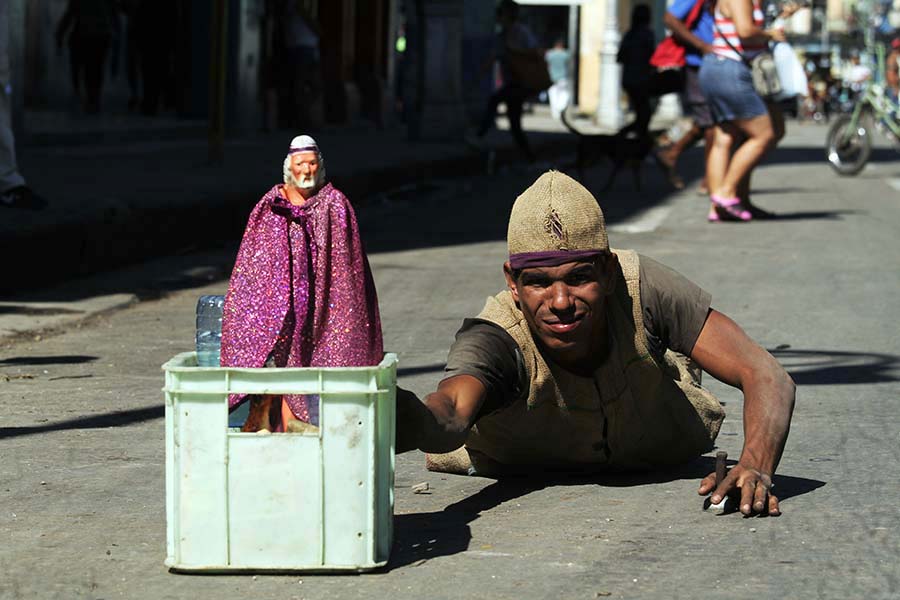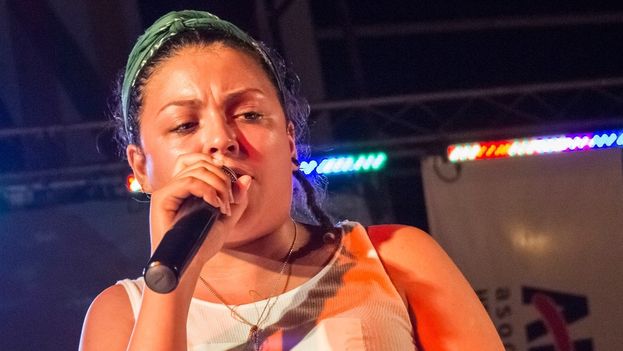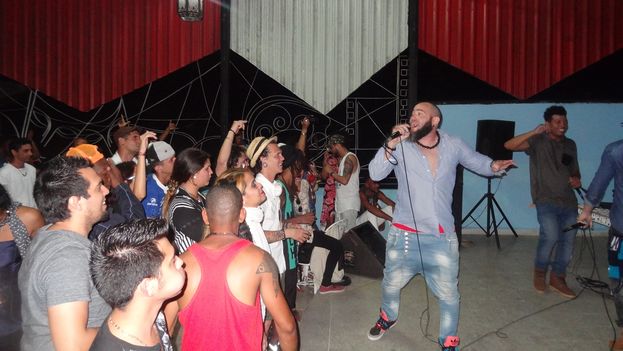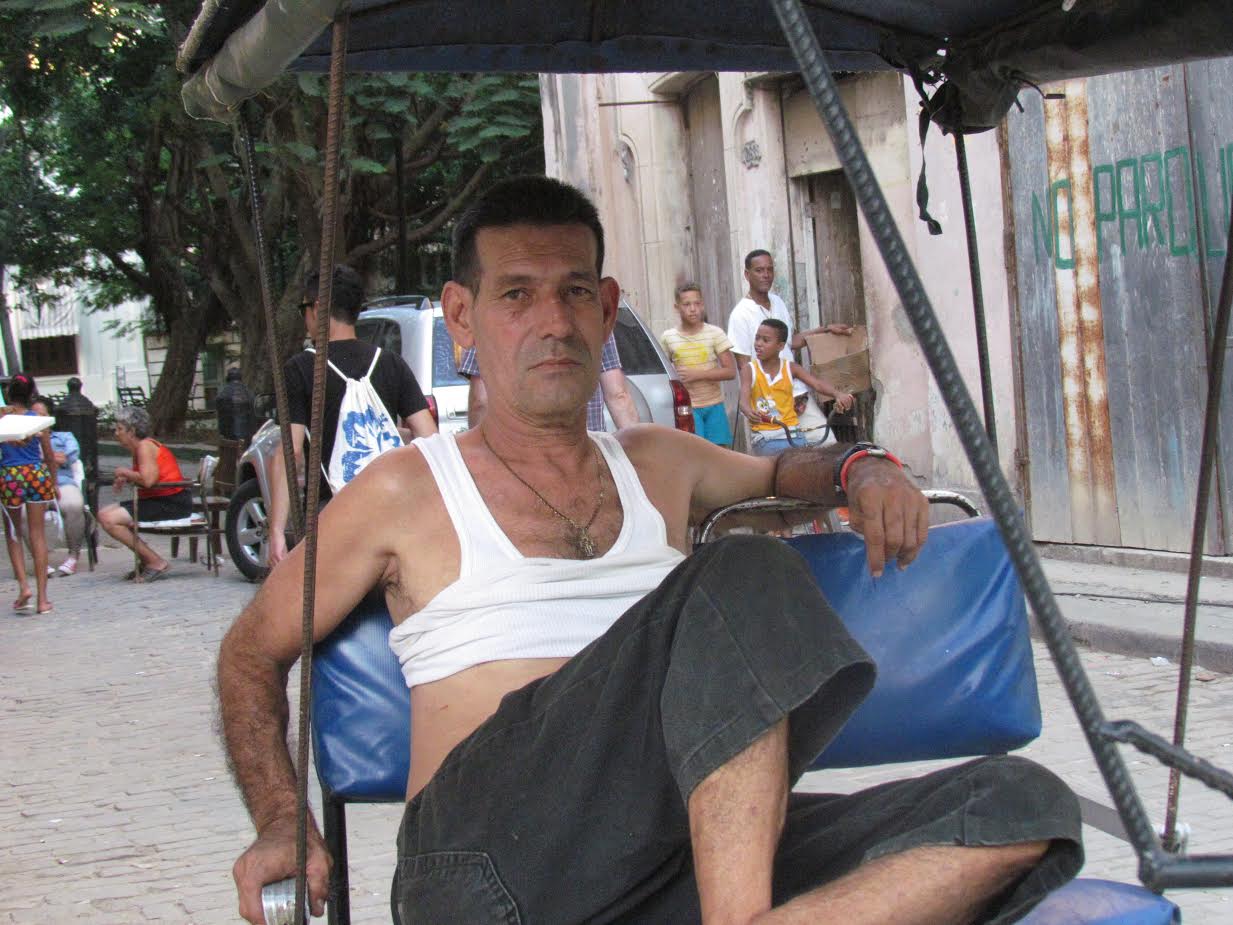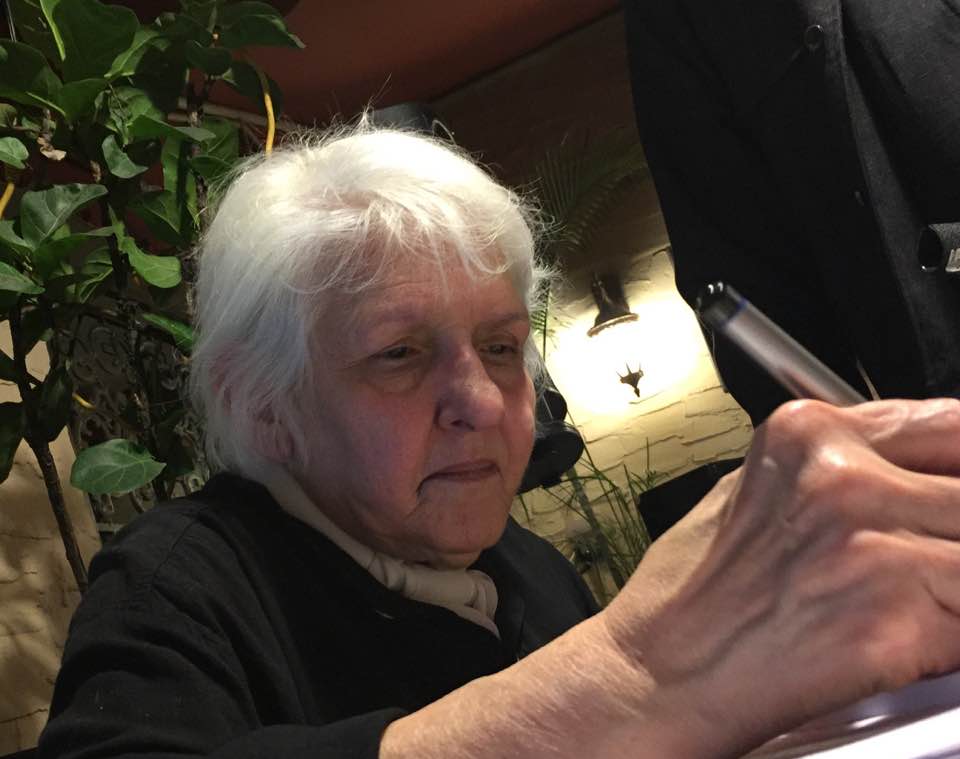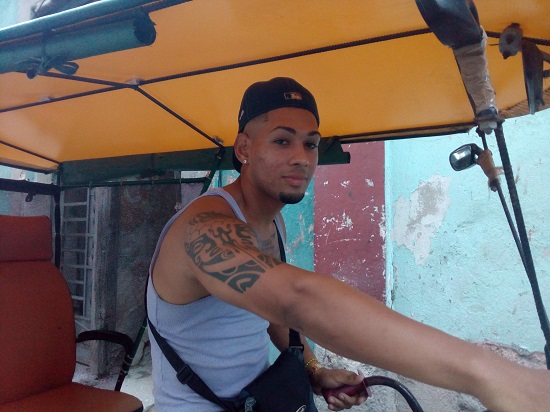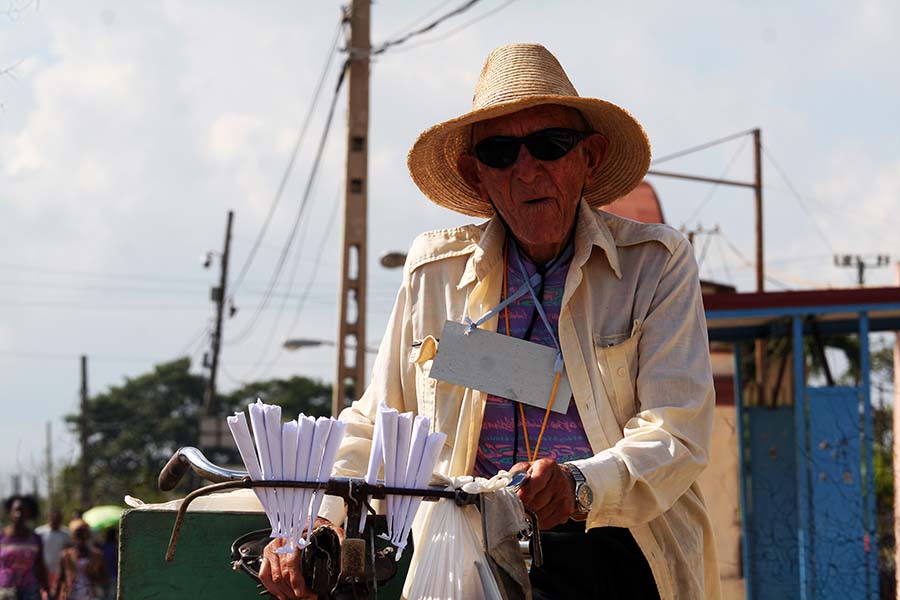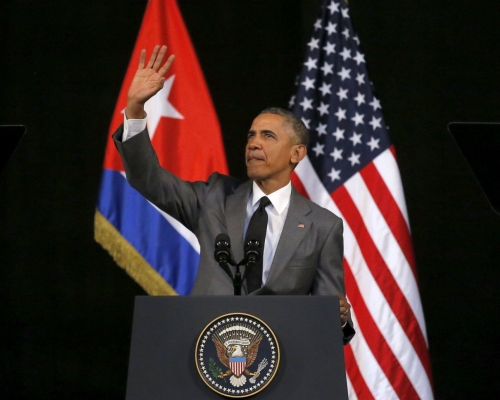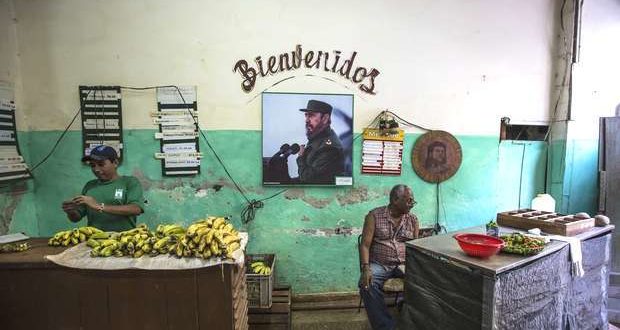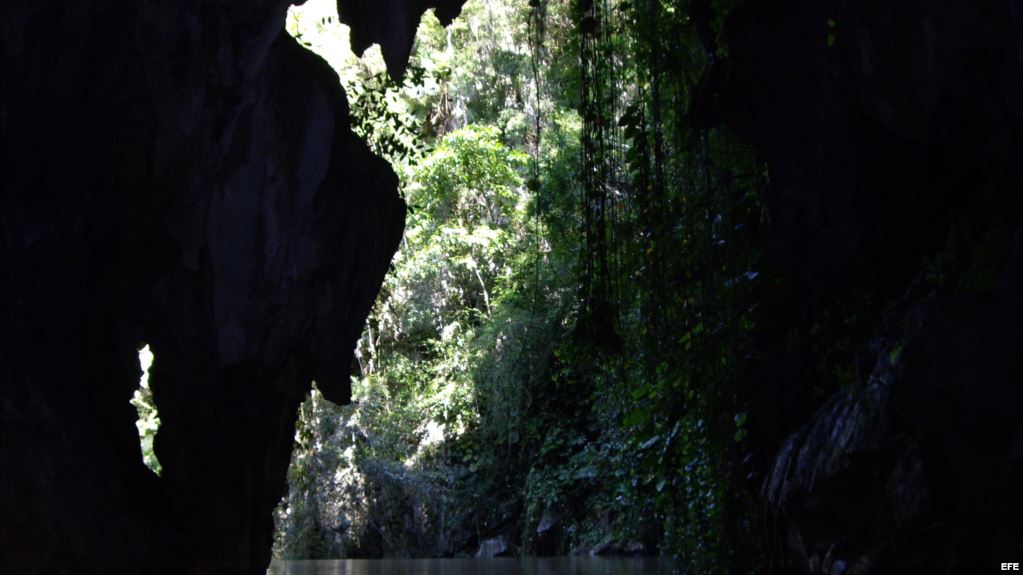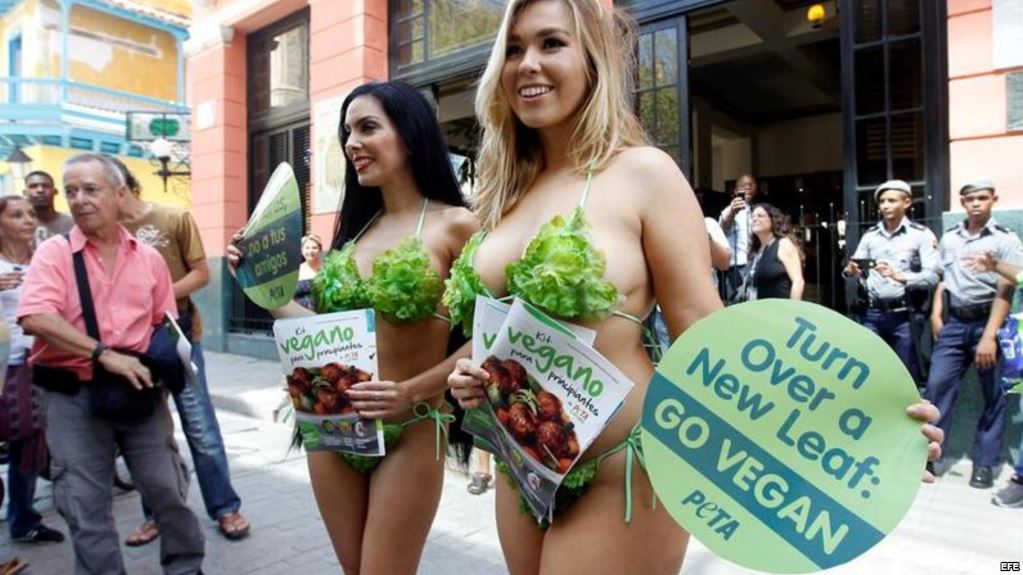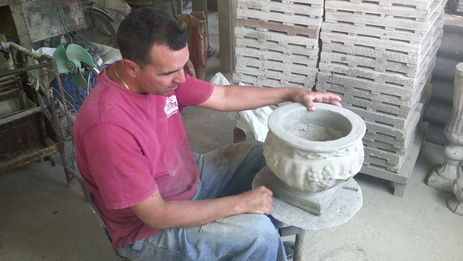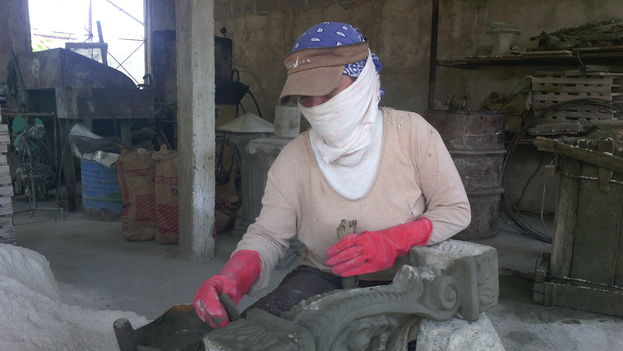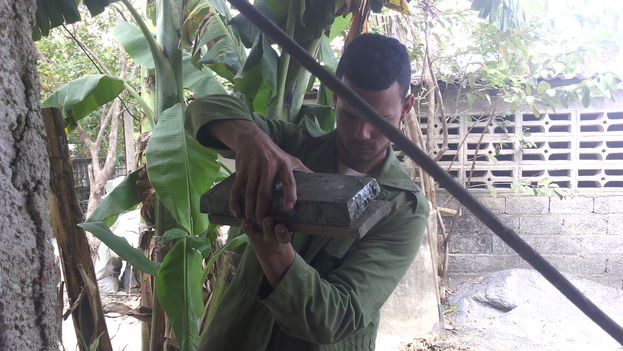Iván García, 17 March 2017 — On a wooden shelf are displayed two bottles of liquid detergent, a dozen packs of Populares cigarettes, a packet of coffee, and, on a hastily-drawn poster, a quotation from the deceased Fidel Castro.
In the bodega’s storeroom, stacked in random heaps, are 10 or 12 bags of rice, a half-empty container of vegetable oil, and several bags of powdered milk that the State provides exclusively for children younger than 7 years of age and for individuals who possess medical documentation of having cancer or some other grave illness. continue reading
Sitting on the stoop at the store’s entrance, two dirty guys knock back mouthfuls of rum from a small jug while a stray dog, old and ragged, urinates on the door. The monotony of the surreal panorama is broken when the saleswoman hurls a piece of hose at the dog to frighten it away.
After a while, customers begin arriving, nylon bags dangling from their forearms and ration books in their hands.
To all who were born in Cuba, the regime sells 7 pounds of rice, 20 ounces of black beans, a pouch of coffee blended with peas, a half-pound of vegetable oil, and 1 pound of chicken per month–and on a daily basis one bread roll, almost always poorly made.
This subsidized market basket, if consumed in small portions at lunch or dinner, will probably last 10 or 12 days. After that, for the remainder of the month, people are on their own. Housewives and mothers who, after getting home from work, must turn on the stove should be given prizes for creativity.
To feed a family requires 90 percent of the household income. Those who make a low salary (which is the majority of the population) have no choice but to purchase average to low-quality merchandise offered by the State. Those who receive remittances from family or friends abroad in hard currency can purchase higher-quality products.
The ration book, which was implemented in March 1962, is the reason that thousands of Cubans have not died of hunger. Although what they eat remains a mystery.
Luisa the saleswoman says that “for four months now, the rice we get at the bodega is dreadful. Nobody can eat it. Not even the best cook could make it better. It sticks, forming a sludge, and it tastes like hell. And don’t even mention the beans. They’ve been taken from the state reserves, where they’ve been stored for ages. They have a terrible smell. And you could try cooking them for four or five hours and they still wouldn’t soften. This is rice and beans that pigs would not eat.”
But Diego and María, a couple of pensioners who between the two of them take in the equivalent of 25 dollars a month, cannot afford the luxury of discarding the subsidized rice.
“I mix it with the rice that’s sold at 4 Cuban pesos per pound; it’s pretty good, and this way we can eat it. If you live in Cuba you can’t be picky. You have to eat what they give you, or what you can find,” María emphasizes.
If you go around inside any state-run cafeteria, you will note that hygienic standards are nonexistent: stacks of cold-cut sandwiches, fritters or portions of fried fish on aluminum trays surrounded by a chorus of flies.
The elderly, those great losers in Raúl Castro’s timid economic reforms, tend to eat foods of low nutritional value and worse preparation, just to lessen their hunger.
There is a chain of state-run dining halls on the Island that serve lunch and dinner to more than a half-million people who are in extreme poverty.
One of these facilities can be found in the old bar Diana, located on the busy and dirty Calzada Diez de Octubre street. The rations cost 1 Cuban peso. According to a Social Security roster provided to the administrator, about 100 Havana residents–almost all low-income elderly people–are served there daily.
At two steel tables covered with cheap cloths, three women and four men, holding their old metal bowls, await the day’s rations. “The food isn’t worth mentioning. A bit of rice, often hard, watery beans, and a croquette or a boiled egg. Sometimes they give you a little piece of chicken,” says Eusebio, a retired railway engineer who lives by himself.
A dozen people interviewed complain more about their bad luck, about having no money and being dirt-poor, than about the bad cooking. “Yes, it’s bad, but at least in these dining rooms we can count on getting lunch and dinner,” notes Gladys, a single mother of four daughters who receives Social Security.
A staff member admits that “it’s very difficult to cook well without seasonings and condiments. Nor do we get vegetables and fruits. On top of that, the administrator and the cooks make off with the oil and the chicken when we get them.”
In Cuba, what is bad, unpleasant and incorrect goes beyond food preparation. You can find it in the dirty stands that hold vegetables and fruits, in the sale of unwrapped goods, or the adulteration of standards for making sausages and weighing them appropriately at the point of sale.
“It shows a lack of respect towards the population. Anything that you buy in Cuban pesos is of horrible quality. It’s the same for clothing, hardware items or household items. In general, what is sold to the people is shit. Look at these bags of watery yogurt,” Mildred points out while standing in line at a state store to buy whipped yogurt at 15 Cuban pesos per bag.
Even when purchases are made with convertible pesos*, it is hard in Cuba to buy items of assured quality.
But Cubans, who must eat, dress and enjoy their leisure time by paying for it with the national currency– the Cuban peso–must make do with devalued merchandise. They are third-class citizens in their own country.
Translated by: Alicia Barraqué Ellison
*Translator’s note: Cuba has two currencies: Cuban pesos, worth about 4 cents US, and Cuban Convertible pesos, each worth 25 Cuban pesos, or about one dollar US. It has been a longstanding, but as yet unfulfilled, promise of the government to move to a single currency.
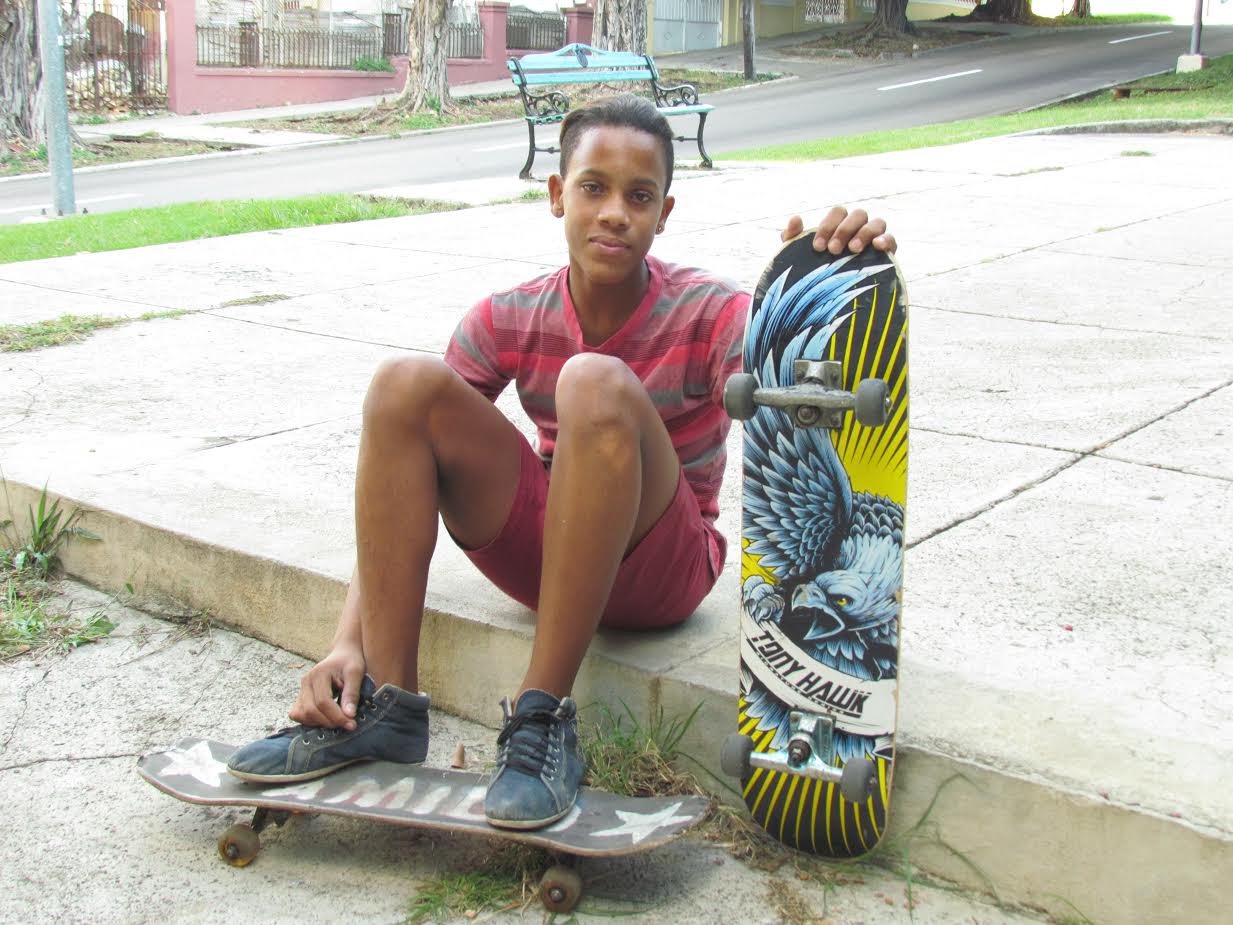
 There’s hardly anyplace left to skate. You can walk around here and the only thing you can find are parks, which are really useless and sometimes we bother people. Old people scold us. I have friends that practice in the middle of the street because the ramps and installations that once existed are in ruins and no one bothers to fix them.
There’s hardly anyplace left to skate. You can walk around here and the only thing you can find are parks, which are really useless and sometimes we bother people. Old people scold us. I have friends that practice in the middle of the street because the ramps and installations that once existed are in ruins and no one bothers to fix them.
